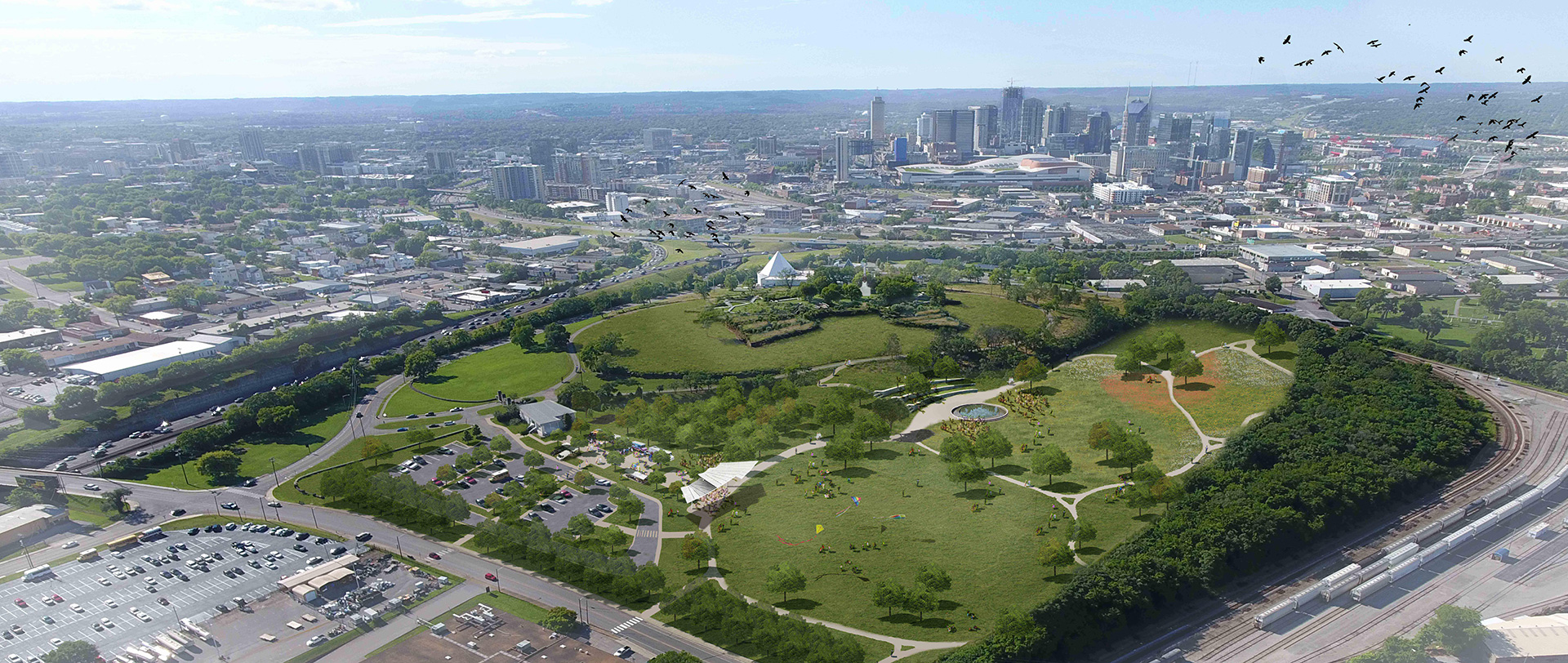The Vision
In the future, this area will be considered “Nashville’s Central Park.” It will be the bustling natural heart of Nashville’s new urban life. With hiking trails and climbing gyms, outdoor bars and music venues, live-work and traditional office, townhomes and condominiums, art studios and apartments, New Heights will be the place to live, work, create, make and be in Nashville’s future.
Direct Access to Abundant Greenspace
Situated immediately between historic Fort Negley and Nashville’s vibrant downtown central business district, New Heights is the only downtown neighborhood outside the Capital Mall with immediate access to the outdoors. Fort Negley and the City Cemetery offer approximately 90 acres of open space for public enjoyment.
The New Heights neighborhood was included in the recently adopted Wedgewood-Houston Chestnut Hill Planning Study, and is intended by Metro Planning serve as the gateway to the Fort Negley park and trail system. 6th Avenue South (aka “The Avenue of the Sciences”) connects central downtown to Fort Negley and the Adventure Science Center, and is a designated Greenway. Bike paths and other pedestrian friendly pathways are under current consideration and design.
Fort Negley
Built in 1862, Fort Negley, a star-shaped limestone block structure sitting atop Saint Cloud Hill, is the largest inland fort built during the Civil War. At a cost of $130,000, it was largely constructed using the labor of almost 3,000 local slaves, newly freed slaves, and free blacks forcibly conscripted for the work. The fort was named for Union Army commander General James S. Negley. The fort never saw intense military action as the Battle of Nashville was fought mostly to the south. Restoration efforts of the Works Progress Administration (WPA) and by preservationists in the early 2000s gave Nashville the stabilized, historic greenspace that it is today, open to the public after being off-limits for many decades. Fort Negley was officially designated a ‘Site of Memory’ by UNESCO (United Nations Educational, Scientific and Cultural Organization) in May of 2019, and is now part of UNESCO’s Slave Route Project.
Historic City Cemetery
Opened January 1, 1822, the Nashville City Cemetery is the oldest continuously operated public cemetery in the city, listed in the National Register of Historic Places in 1972. Expanded several times past its original 4 acres, it is the final resting place for over 20,000 people of every race, religion and economic status including city founders, mayors, performers and slaves. After falling into disrepair, former Mayor Bill Purcell and the Metro Council approved a $3 million restoration project, completed in 2009. Open daily to the public, its peaceful, shaded greenspace is maintained by The Nashville City Cemetery Association, the Metro Historical Commission and the Metro Board of Parks & Recreation.




